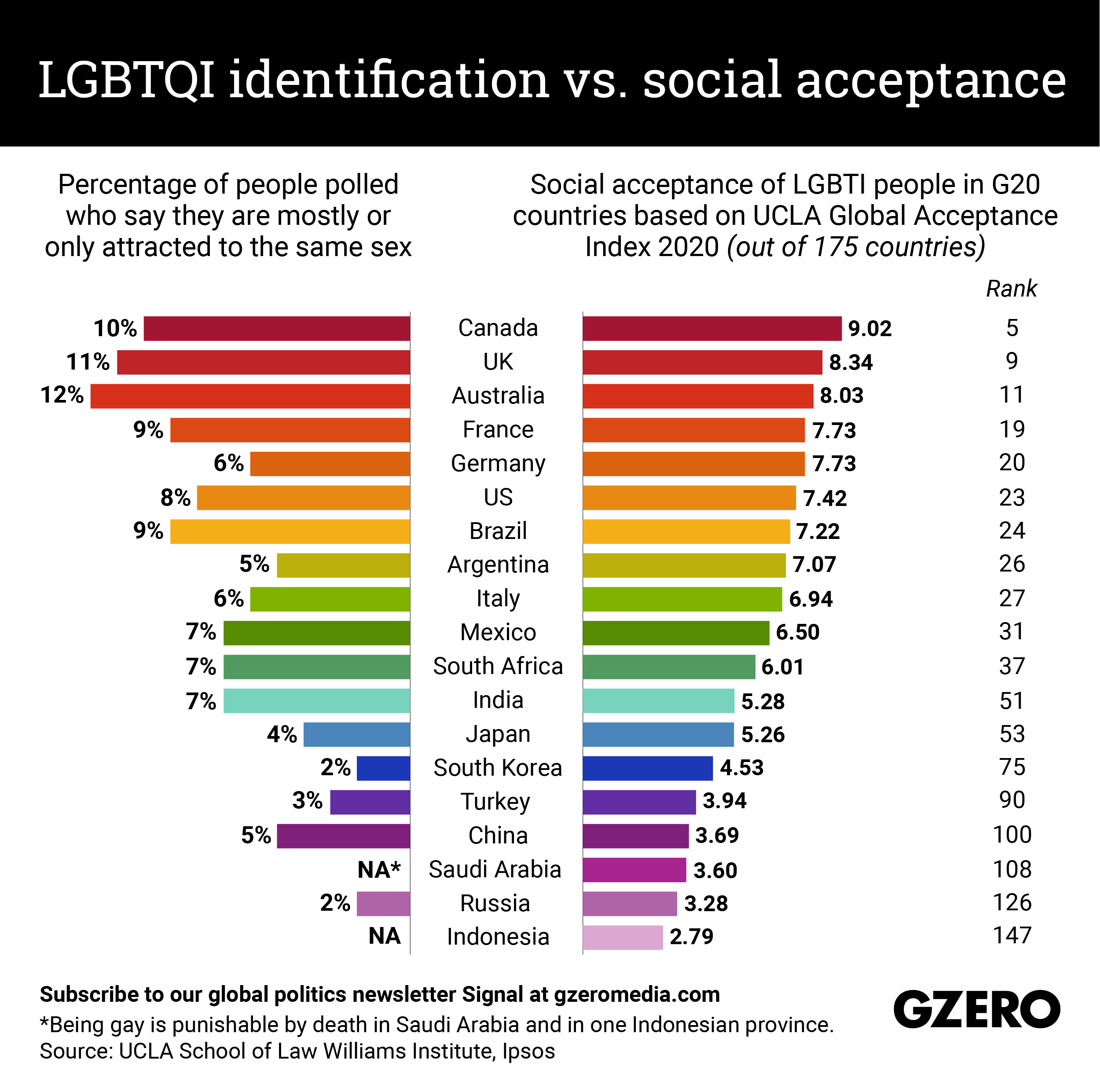June 17, 2022
International polls often gauge what percentage of a given population identify as LGBTQI (lesbian, gay, bisexual, trans, queer, intersex). But the willingness of people to divulge their gender identification and sexual preference is likely influenced by social and cultural attitudes towards LGBTQI people. In Saudi Arabia, for instance, where same-sex sexual acts can be punishable by death, no one is going to be upfront about their sexual proclivities. We look at the percentage of people who identify as LGBTQI in G20 countries, as well as how each of these countries rank on UCLA Law School’s LGBTI Social Acceptance Index.
This comes to you from the Signal newsletter team of GZERO Media. Subscribe for your free daily Signal today.
From Your Site Articles
- Hard Numbers: Hungary vs EU over LGBT rights, Hong Kong tabloid ... ›
- Hard Numbers: Chile legalizes gay marriage, Peruvian president ... ›
- Worlds apart on LGBTQ rights: same-sex marriage worldwide ... ›
- The remembrance, heartbreak & protest of the AIDS quilt - GZERO Media ›
- Why Greek PM Mitsotakis pushed for same-sex marriage despite strong opposition - GZERO Media ›
- Are identity politics making students less tolerant? - GZERO Media ›
More For You
Tune in on Saturday, February 14th at 12pm ET/6pm CET for the live premiere of our Global Stage from the 2026 Munich Security Conference, where our panel of experts takes aim at the latest global security challenges.
Most Popular
- YouTube
In this Quick Take, Ian Bremmer weighs in on the politicization of the Olympics after comments by Team USA freestyle skier Hunter Hess sparked backlash about patriotism and national representation.
British Prime Minister Keir Starmer delivers a speech at Horntye Park Sports Complex in St Leonards, Britain, February 05, 2026.
Peter Nicholls/Pool via REUTERS
In July 2024, Keir Starmer won the United Kingdom’s election in a landslide. It has been downhill ever since, with Starmer’s premiership sullied by economic stagnation, intraparty fighting, and a lack of vision for the country.
© 2025 GZERO Media. All Rights Reserved | A Eurasia Group media company.
